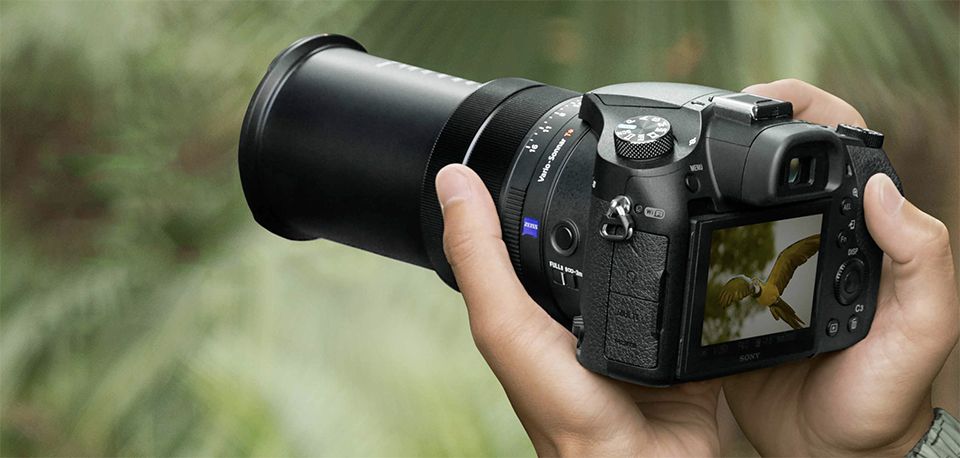

When we’re on holiday or a special trip, we probably take the most pictures - therefore it makes sense to pick up the best travel camera rather than solely relying on your smartphone.
Despite a couple of years of travel restrictions, the travel camera market is still filled with a wide range of different models. No matter what your budget, skill level or genre requirements, there’s something that will suit you out there.
Many of our buying guides settle on one particular camera as an outright winner. It’s harder to do that when it comes to travel cameras since there are lots of different reasons why something could be considered a good travel camera.
As such, our list is fairly diverse, giving you a good range of options to choose between depending on exactly what you need.
It’s always a good idea to reserve a healthy budget for a travel camera, especially if you’re embarking on a particularly exciting or unusual trip. After all, long after you’ve returned home, you’ll still have the pictures to look back on if you choose well.
Cameras equipped with a large zoom are also often touted as ideal travel cameras, giving you the option to take pictures from landscapes to faraway subjects with ease. If that’s what you require, there are a couple of small compact cameras on our list, as well as more advanced (and bulkier), bridge cameras.
How to buy the best travel camera for you
Why you can trust T3
When it comes to buying the best travel camera, you’ll probably be facing a decision between portability and image quality. Picking up something which neatly fits in a pocket or bag makes a lot of sense if you’re restricted on your baggage allowance.
That said, if you’re aiming to capture memories that will last a lifetime, you might argue that having the best flexibility with different lenses and so on is the most sensible choice.
For those in the former camp, the Sony RX100 VII is probably the best choice, but if your budget isn’t enormous then it likely won’t appeal. In which case, have a look for older RX100 models which are still great cameras and come in at different price points. The Panasonic TZ200 is also a fantastic alternative that gives you a decent zoom paired with a one-inch sensor for good all-around travel shooting.
Another type of travel photographer is the “adventure” type. If that's you, then the market leader and obvious choice is the GoPro Hero 10 Black. You can use it to grab videos (and even some stills) of your most daring exploits, up mountains, under the sea, and even for more sedate activities such as poolside and beachside activities.
If you’re the type whose main reason for going on holiday is to capture photographs, then it will be image quality that is at the forefront of your mind. If you still want to travel light, then models which use a sensor smaller than full-frame make for the best compromise.
There’s the Nikon Z50, an APS-C model which is well-suited to travel, as well as cameras such as the Fujifilm X-T30 and the Canon EOS M6 Mark II. There are also Micro Four Thirds models such as the Panasonic G90 and the Olympus PEN E-P7 which with their overall very small system size give you the most flexibility. For those that do want to go full-frame, cameras like the Nikon Z6 II make a lot of sense.
Bridge models make for excellent travel options, giving you a bit of everything all in one model. The best ones out there right now are the Sony RX10 IV and the Panasonic FZ2000, but if zoom is your main concern, then the Nikon P1000 offers a ridiculous 125x zoom - ideal for safaris.
Finally, there’s another two types of compact cameras. The first are long-zoom models such as the Canon SX740 which although offering a large zoom compromise on image quality by offering a small sensor. Then, you’ve got fixed lens models such as the Fujifilm X100V which offer superb image quality, but only one focal length to shoot with.
There’s always a compromise to be made, so with all of these things considered, read on to find one which is best suited to your needs.
The best travel cameras you can buy today
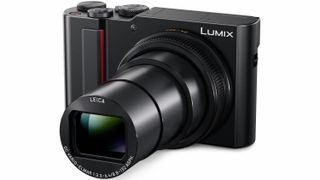

Specifications
Reasons to buy
Reasons to avoid
For the ultimate marriage between high portability while keeping high-image quality, the TZ200 is currently the best around. Panasonic has kept the predecessor, the TZ100 in the line-up, giving you two options depending on your budget.
For the extra cash, the TZ200 gives you greater flexibility with a 15x optical zoom lens, a higher resolution electronic viewfinder, a slightly better screen (which is touch-sensitive, but fixed in place), and an improved battery life.
Ergonomics have also been improved by the addition of a strip along the front of the camera to help you get a better grip on it. Although relatively expensive, the TZ200 is a fantastic all-rounder without too much compromise.
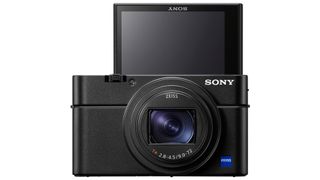

Specifications
Reasons to buy
Reasons to avoid
If budget is no problem, there should be nothing stopping you from investing in the RX100 VII. It offers pretty much everything you could ever hope for in a pocket-friendly camera. The large one-inch sensor produces excellent results, while the highly flexible zoom lens gets you nice and close to the action, while also being wide enough for excellent landscapes and interior shots.
A pop-up viewfinder is great for traditionalists when it comes to composing, or if the sun is a little bit too bright to see the screen properly. Video specifications are also good, with a new microphone socket no doubt appealing to the travel vlogging community - of which there are many.
If you’re a mainly a stills shooter, there’s little to be gained from picking up the VII compared with the ever so slightly older VI, while others down the line are also still fantastic buys if you don’t need such a long zoom.
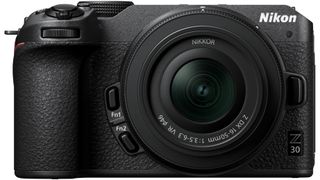

Specifications
Reasons to buy
Reasons to avoid
Baby sister to the existing Z 50, this time Nikon has online influencers, vloggers and content creators of all descriptions in its sights, though its compact size also makes it well suited to travel. Whatever its eventual audience, it’s selling its smallest mirrorless camera to date as ‘video first’, meaning the option of up to 35 minutes of 4K video in a single sequence, or 125 minutes of Full HD video. Omitting both an eye level viewfinder and built-in flash as result, swift operation centres around the tilt and swivel LCD screen at the back, and of course the 20.9MP APS-C sensor at its heart.
Despite the slimmed down Z 30 design, we still get a reassuringly chunky handgrip that makes for steady one-handed recording. Resulting imagery delivers plenty of contrast and detail, while the built-in stereo microphone also impresses. Photos are crisp and sharply rendered too, via the 16-50mm kit lens.
With the ability to add an external mic for even better sound and a hotshoe for various accessories, this one can be expanded beyond what initially emerges from the box. If we’ve a grumble it’s that the body-only price is a little high for a ‘starter’ option. So seek out the lens and accessory bundles available that suggest better value if you’re stepping up to this from a smartphone and don’t already own a bunch of Nikon lenses.
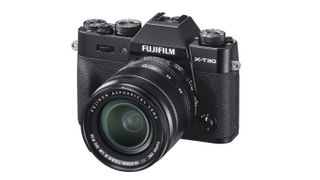

Specifications
Reasons to buy
Reasons to avoid
Much like the X-T20 before it, the X-T30 borrows the best bits from the X-T3 and delivers them inside a smaller, lighter and more affordable body. It's a winning combination which made the T20 Fujifilm's most popular model.
Quite franky, we think the Fujifilm X-T30 could be the perfect camera for most people. It's got a tough body (although, not weather proof), lightening fast auto focus performance, and, most importantly, great image quality straight out of the camera.
If you need even more reasons to buy one, the T30 is also capable of recording beautiful 4K video, and it can do all this for a very reasonable price.
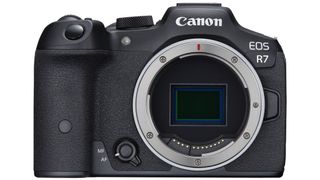

Specifications
Reasons to buy
Reasons to avoid
With the aim to make smaller yet high speed and high performance cameras ideally positioned for enthusiasts, Canon has, for once, deviated from the full frame sensor models that make up its enthusiast and pro-targeted EOS R mirrorless camera series. Both the EOS R7 shown here and simultaneously released R10 incorporate physically smaller APS-C sensors, as commonly found in its consumer-level DSLRs. The EOS R7 is the bigger brother of the two, featuring a 32.5MP resolution. Given this, its intended audience, says Canon, is wildlife photographers, who will relish the extra detail, along with sports photographers. The latter group will benefit from the fact that this camera, along with its lower resolution sibling, has the fastest continuous mechanical shutter of an APS-C EOS camera at 15fps, with the alternatives, via use of the electronic shutter, being 30fps and 23fps.
As with most mirrorless touch screen cameras these days, on the EOS R7 we can bias which portion of our frame is in focus, here via a Touch and Drag AF feature. This Canon is also claimed to make history in being the first camera in the EOS R system to have a combined AF multi controller and control wheel, thereby enabling fast and convenient setting and playback function adjustment via a single thumb movement or dial rotation.
The EOS R7 additionally features what Canon claims as the world’s highest level of image stabilisation, equivalent to 8 stops. Wi-Fi and Bluetooth connectivity is offered on both this camera and its R10 brother, again as we’d expect from a contemporary digital camera.
In conclusion, the deal here is essentially that we’re paying a bit more if we need the higher resolution and extra bells and whistles of the EOS R7 – otherwise we can save a few hundred quid and opt for the lower resolution but still similarly featured EOS R10 instead. Both are obviously targeted at ensnaring Canon users who have been thinking about physically downsizing from existing and typically bulkier DSLRs. That also makes this option and its sibling an ideal travel companion.
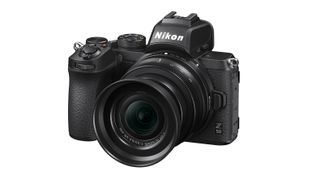

Specifications
Reasons to buy
Reasons to avoid
If your budget can’t stretch to a Nikon Z6 – or you just want something even smaller - there’s a lot to like about the Z50. It uses an APS-C sensor, rather than a full-frame, which means that Nikon has been able to distil the great handling of the Z series into an even smaller body. Image quality will likely still be fantastic - especially in good holiday light - while there have even been lenses that are specifically designed for it to keep the size down.
For now, there’s not a huge range of native Z lenses to choose from, but the system is steadily growing as time goes on. The Z50 also benefits from a screen that faces all the way forwards, great for grabbing those vacation selfies.
You may also want to think about the more recently announced Nikon Zfc, which features the same internals as the Z50 but with a beautifully retro-styled chassis. Nice.
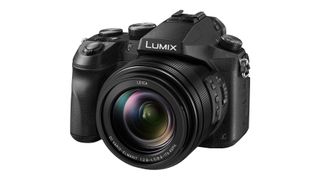

7. Panasonic FZ2000
Specifications
Reasons to buy
Reasons to avoid
For those who want the flexibility of multiple lenses, without the hassle (or expense) of carrying them around, then a bridge camera such as the FZ2000 is the ideal choice. Packing a 20x zoom, you’ve got lots of options to photograph a range of different subjects, while the one-inch sensor inside performs well in a variety of conditions. You’ve also got some decent video specs on offer here, and while the camera is relatively bulky (you won't fit it in your pocket) when you think about what it can offer, that still makes for a good travel option.
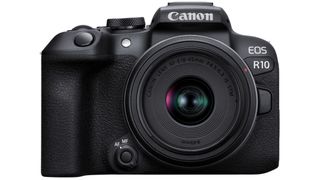

Specifications
Reasons to buy
Reasons to avoid
Looking outwardly identical to the EOS R7 model introduced alongside it, the APS-C sensor incorporating EOS R10 in fact offers a lower but still very respectable 24.2-megapixel resolution, as opposed to its sibling’s 32.5MP. So it’s a case here of pay your money and make your choice, with the R10 unsurprisingly coming in a few hundred cheaper. That’s a saving that can theoretically be spent on more lenses and accessories, of which, this being Canon, there are many.
Aside from being a money-saving option in comparison with its R7, the R10 will appeal to those looking for an all-rounder, as suited to video as it is stills capture. It’s still smaller and more manageable in terms of size than the average DSLR, which also makes it a good option for travel photography. As we’d expect, Wi-Fi and Bluetooth is integral to the camera here and, as with the more expensive option, the R10 retains the ability to continuously shoot with its mechanical shutter at 15fps, or if utilising an electronic shutter instead, being able to get up to 23fps. Like its bigger brother this camera also features a vari-angle LCD screen, thus enabling a wider variety of shooting angles and, in theory, expanded creativity.
If you don’t mind compromising on a few features found on its R7 sibling but not found here, such as dual card slots as opposed to the one card slot, or the omission of body integral image stabilisation, the Canon EOS R10 should prove a capable tool for photographers and videographers looking to begin their mirrorless photography journey; or a literal one, if choosing this camera as a travel-friendly option.
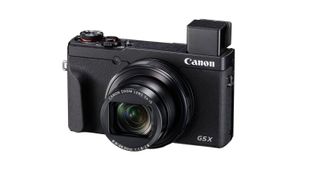

9. Canon G5X Mark II
Specifications
Reasons to buy
Reasons to avoid
A great all-round premium compact camera, the G5X Mark II might not be quite jeans-pocket friendly, but it should certainly fit well within your bag or jacket pocket. It’s got a good range of features, with a well-performing one-inch sensor at its heart, which is coupled with a fairly flexible 24-120mm zoom lens. In terms of video, it offers uncrossed 4K recording, but unlike its sibling, the G7X Mark III, it doesn’t offer a microphone socket or live streaming to YouTube – so if you’re a dedicated travel vlogger you might want to look that way instead. If you like composing through a viewfinder, the G5X Mark II features a small but perfectly usable pop-up number that is great for using in bright light.
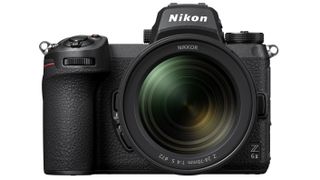

Specifications
Reasons to buy
Reasons to avoid
One of the best all-rounder models on the market, the Nikon Z6 II is a good option for those who want premium image quality on their travels.
An incremental upgrade from the original Z6, the Z6 II adds dual memory card slots - giving you peace of mind while on your travels since you can back up your shots as you go.
Internally, you get a well-performing sensor and processor combination. Usability of the camera is great, with a lovely viewfinder and screen set up. There’s now a good range of lenses for the Z range, including zooms ideal for travel such as the 28-120mm lens.
Although bulkier than some of the models in our list, if your travels are to take pictures, then something like this is certainly worth considering, while it shouldn’t break the bank too badly. That said, if you think you can live without that secondary card slot - take a look at the original Z6 for a bit of a bargain.
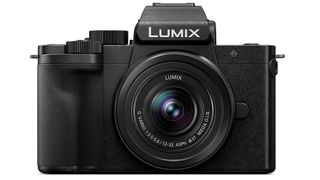

11. Panasonic G100
Specifications
Reasons to buy
Reasons to avoid
At launch, Panasonic touted its G100 camera as the “ultimate” vlogging camera. So, if travel and video-creation go hand in hand for you, this could be just the model you need. With its small and compact size, it’s also a good option for stills photography - so if you like to record a variety of formats it’s worth considering.
Being in the Micro Four Thirds format makes the overall system very small, so you can also bring a bag of compatible lenses along with you for the trip, while still having plenty of room in your hand luggage.
Having a smaller than APS-C or Full-Frame sensor means that this camera isn’t so adept at low light, but for many travel situations that won't be too much of a problem.
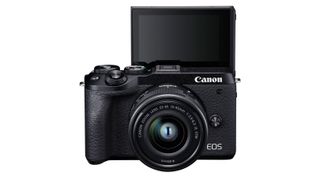

12. Canon EOS M6 Mark II
Specifications
Reasons to buy
Reasons to avoid
Using the same ultra-high-resolution sensor as the 90D DSLR, the Canon EOS M6 Mark II is a great option for travel thanks to its small size and weight. Despite that, it packs some incredible features like 14fps shooting and uncrossed 4K video recording. It doesn’t have an inbuilt viewfinder, but you can purchase one separately if you feel the need to buy one - if you’re used to composing shots on your phone, you’re likely to be a little less bothered. The 15-45mm kit lens supplied with the camera is a decent walk around and travel lens, but if you crave something a little sharper, go for the 32mm f/1.4 lens.
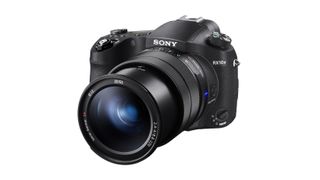

13. Sony RX10 IV
Specifications
Reasons to buy
Reasons to avoid
To use the term bridge camera with the RX10 IV would be doing it a disservice, as this term has generally been met with snooty derision from “serious” photographers. While it may well be one in the strictest sense of the word, the RX10 IV arguably redefines the genre, producing the ultimate all-rounder which is ideally targeted at travellers who want the image quality of an interchangeable lens camera and a bunch of optics, but don’t want to carry them around.
Here you’ve got a 25x optical zoom lens, which also manages reasonably wide apertures of f/2.4-4 (particularly impressive at the 600mm end), along with a high-quality EVF, fantastic AF system and a very well performing sensor. Take this on your safari holiday and you won’t be disappointed - just be prepared to shell out the big bucks.
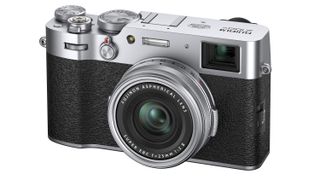

14. Fujifilm X100V
Specifications
Reasons to buy
Reasons to avoid
Although at first something with a fixed lens might seem to be the antithesis of a travel camera, it very much depends on what kind of holiday you’re going on.
For city breaks where you might be partaking in street photography, the Fujifilm X100V is arguably perfect. Yes, there’s a fixed lens - but that just means you need to get closer to the subject.
What you get in return is a large sensor, fantastic image quality and, let’s face it - a lovely looking camera that's also a joy to use.
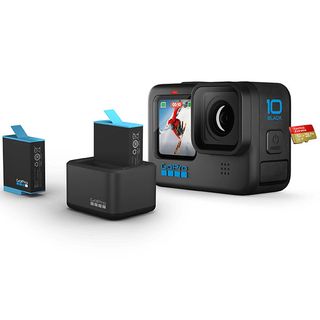

15. GoPro Hero 10 Black
Specifications
Reasons to buy
Reasons to avoid
If you want something which you can take with you on all of your adventures, especially if video is your thing, then you can’t really get better than the GoPro Hero 10 Black.
This action camera is the company’s most powerful and streamlined version yet, giving you video recording options all the way up to 5.3K. It’s also fully waterproof and is easier to use than previous models thanks to a more responsive touch-sensitive screen.
Most importantly, video quality is excellent - especially if you’re taking in some rocky action and need it to be as smooth as possible.
Easily one of the best compact system cameras on the market, the Panasonic G9 is a great all-rounder for a wide range of travel subjects. If you’re shooting wildlife, the 20fps (at full resolution) burst speed is sure to appeal, while the fine detail and excellent colours produced by the sensor make it good to capture landscapes, portraits and everything in between.
While the G9 may be relatively bulky for a compact system camera, since the Micro Four Thirds system is small, you can fit a slew of lenses in your hand luggage while barely noticing they’re there - something you won’t get with a full-frame alternative.
Liked this?
- Make sure you're using the best suitcase: quality luggage from Samsonite, Tumi and more
- This is the best carry-on luggage: from premium business cabin luggage to cheap lightweight cases
- Best camera backpack: protect your photography gear
- Best travel tripod: lightweight tripods ideal for travel
Sign up to the T3 newsletter for smarter living straight to your inbox
Get all the latest news, reviews, deals and buying guides on gorgeous tech, home and active products from the T3 experts
Amy Davies is a freelance journalist that covers cameras for T3 and many other sites. She is also Features Editor at Amateur Photographer magazine and, when she's not writing about cameras, she's probably taking pictures of her cute dog.
-
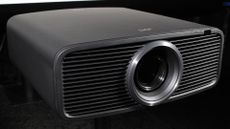 JVC DLA-NZ700 review: premium performance without the price
JVC DLA-NZ700 review: premium performance without the priceJVC’s 4K HDR beamer delivers big-screen expertise
By Stephen Withers Published
-
 GoRuck Rough Runner Review: a durable and comfortable shoe for running, rucking and workouts
GoRuck Rough Runner Review: a durable and comfortable shoe for running, rucking and workoutsLooking for a shoe you can do a bit of everything in? The Rough Runner is a strong contender
By Bryony Firth-Bernard Published
-
 Best earbuds 2025
Best earbuds 2025Small in size but big in sound quality – these are ideal in-ear options
By David Nield Last updated
-
 Best PS5 SSD 2025: store 100s more games on your PlayStation 5
Best PS5 SSD 2025: store 100s more games on your PlayStation 5The definitive guide to the best SSDs for PS5 available today
By Rik Henderson Last updated
-
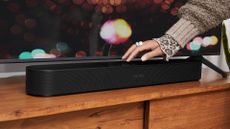 Best soundbar for small TVs 2025: clearer, deeper TV sound in any space
Best soundbar for small TVs 2025: clearer, deeper TV sound in any spaceThe best soundbars for small TVs 2025} can bring you big sound from a compact unit
By Simon Lucas Last updated
-
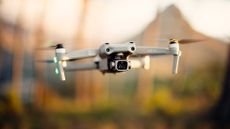 Best drone 2025: transform your perspective
Best drone 2025: transform your perspectiveTake to the skies with the best drones, offering stunning aerial photography, intuitive controls, and cutting-edge features for beginners and pros alike
By Matt Kollat Last updated
-
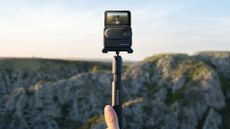 Best action camera 2025: rugged cams for adventurers and vloggers
Best action camera 2025: rugged cams for adventurers and vloggersThe best action cameras from GoPro, DJI, Insta360 and others to capture your adventures
By Matt Kollat Last updated
-
 Best drones for kids 2025: toy flying machines for fledgling pilots
Best drones for kids 2025: toy flying machines for fledgling pilotsThe best kids' drones are tons of fun and make excellent gifts – here's our top selection
By Derek Adams Last updated
-
 Best Garmin golf watch to get you around the course with ease (and GPS) in 2025
Best Garmin golf watch to get you around the course with ease (and GPS) in 2025Garmin make some of the best GPS golf devices and specialise in watches, but which one is best for you?
By David Usher Last updated
-
 Best TVs for Xbox Series X 2025: amazing panels for Xbox gamers
Best TVs for Xbox Series X 2025: amazing panels for Xbox gamersThe best Xbox Series X TVs deliver next-gen HDMI 2.1 features, plus Dolby Vision & Dolby Atmos gaming
By Louise Blain Last updated